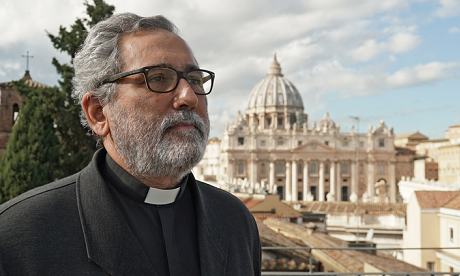While acknowledging the Vatican budget is being trimmed to fit the post-pandemic economy, Fr Juan Antonio Guerrero SJ says rumours suggesting the Vatican is facing a massive default are not true.
Nor is it true that an internal analysis of the economy given to Pope Francis places the Vatican’s annual deficit at risk of growing by 175 percent.
Guerrero, who is the prefect of the Vatican Secretariat for the Economy was responding to claims made by Italian newspaper Il Messaggero on Sunday.
In fact, he says the secretariat’s most optimistic scenario anticipates “a 25 percent decrease in revenue” while “the most pessimistic (averages to) around 45 percent.”
Il Messaggero also said Francis told curial heads to be frugal, stop hiring new employees, eliminate superfluous costs and to not make new trips or organise new conferences.
While not denying the meeting took place and agreeing measures to cut costs have been discussed, Guerrero says the Vatican’s focus is “to find a way to ensure our mission” and determine “what is and what is not essential.”
What needs to understood, however, is the Vatican economy “cannot be completely measured merely in terms of deficit or cost. We are not a business, we are not a company.
“Our objective is not to make a profit. Every dicastery, every entity performs a service. Every service has associated costs. Our approach must be the maximum sobriety and the maximum clarity. Our bottom line is in view of mission.”
Since the church carries out its mission thanks to the offerings of the faithful, he said, the Vatican must “manage our finances with the passion and diligence of a good family man.”
Nevertheless, “there are three things that are not in question, not even in this moment of crisis: employee salaries, aid for people in difficulty and support for the churches in need. No cut will affect those who are most vulnerable.”.
The Vatican’s “bottom-line mission” encompasses communicating what the Pope does in 36 languages, through radio, TV, the internet, social media, a newspaper, a printing house, a publishing house, the press room (and so on). This uses about 15 percent of the budget.
Guerrero says other expenses include: the Nunciatures – small embassies of the Gospel, which defend the rights of the poor through international relations. They absorb 10 percent of the budget. Then there are the Oriental Churches, that are often persecuted (10 percent); another 8.5 percent is spent on the poorest Churches, on the missions.
In addition, funds are spent on the protection of the unity of doctrine, the causes of the Saints, the conservation the “heritage of humanity” such as the Vatican Library and Archives, building maintenance – another 10 percent and taxes about six percent of the budget (17 million).
“Between 2016 and 2020, both income and expenses have been constant: revenue, in the region of 270 million (euros), expenses averaged around 320 million, depending on the year.
“In any case, unless there is some extraordinary income, it is clear that the deficit will increase,” Guerrero says.
Source
Additional readingNews category: World.




